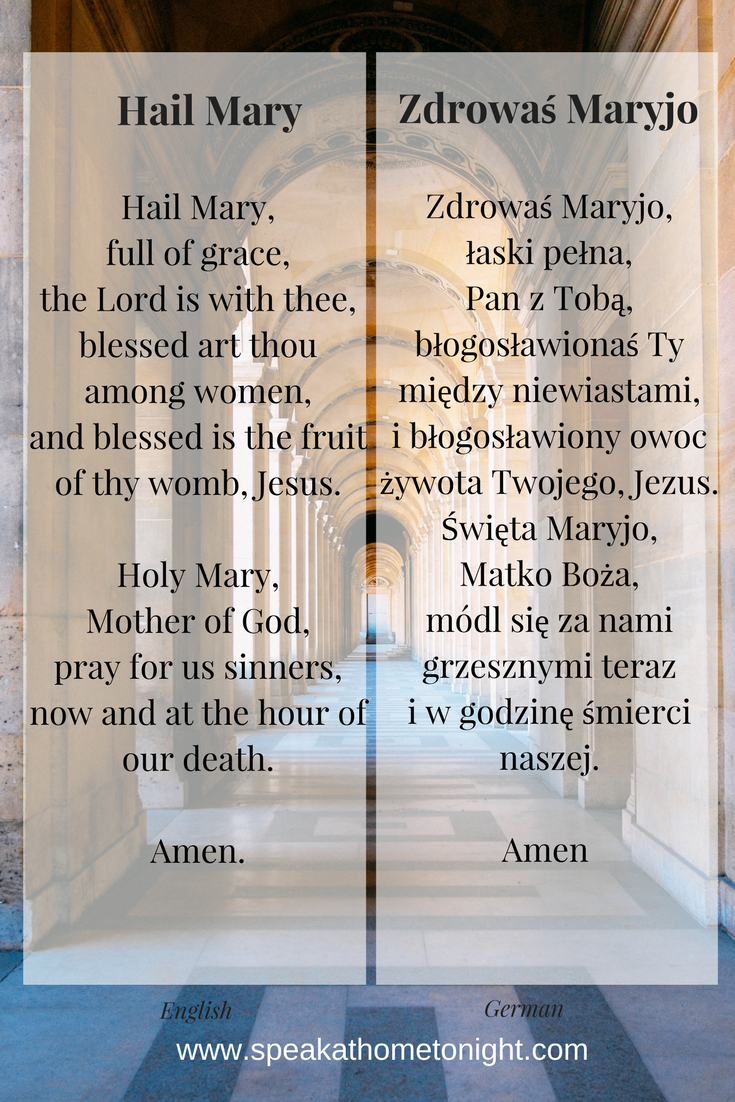


Mary was totally devoted to doing God’s will with great love and humility. (She had that in common only with her Son!) She was, in the words of the Baltimore Catechism “without any sin and gifted with every virtue.”

Mary was the perfect choice to be the Mother of God in that, although she was human just like the rest of us, she was nonetheless conceived without the stain of original sin (in what we refer to as the dogma of the Immaculate Conception). Because of that, as we read in John’s Gospel (John 1:14), “the Word was made flesh and dwelt among us.” Her famous response was “Behold the handmaid of the Lord be it done to me according to thy word,” (Luke 1:38) in joyful agreement with the Divine request. The first two lines recall the Archangel Gabriel’s greeting to Mary before he told her that God had chosen her to be the Mother of His Son, Our Lord Jesus Christ!

The first part of the Hail Mary (lines 1-4) comes from passages in Luke’s gospel relating to the first two Joyful Mysteries of the Rosary, the Annunication (from Luke 1:28) and the Visitation (from Luke 1:42). He also noted that “as all heaven rejoices when the ‘Hail Mary’ is said, so also do the devils tremble and take flight.” Amen.īlessed Alan de la Roche, a great champion of the Rosary in the 15th century, once said that “When I say Hail Mary, hope is made strong in my breast and the dew of consolation falls on my soul….the angelic salutation is a rainbow in the heavens, a sign of the mercy and grace God has given to the world.” Holy Mary, Mother of God, Pray for us sinners, Now and at the hour of our death. Hail Mary, full of grace, The Lord is with Thee Blessed art thou among women, And blessed is the fruit of thy womb, Jesus. It is as simple as it is elegant, in any language: The Hail Mary has also been the inspiration for some great musical settings of its text in Latin, most famously in the Ave Maria by Franz Schubert. This wonderful prayer has helped give people the graces, strength, and spiritual protection they’ve needed for hundreds of years. It has inspired much fervent devotion to Jesus and His Blessed Mother. The Hail Mary, sometimes called the “angelic salutation,” is the foundation for such famous prayers such as the Rosary and the Angelus. THIS WEB PAGE IS ALSO AVAILABLE AS A PODCAST HERE. THE FIVE FIRST SATURDAYS IS A DEVOTION NEEDED NOW MORE THAN EVER! FIND OUT MORE HERE


 0 kommentar(er)
0 kommentar(er)
